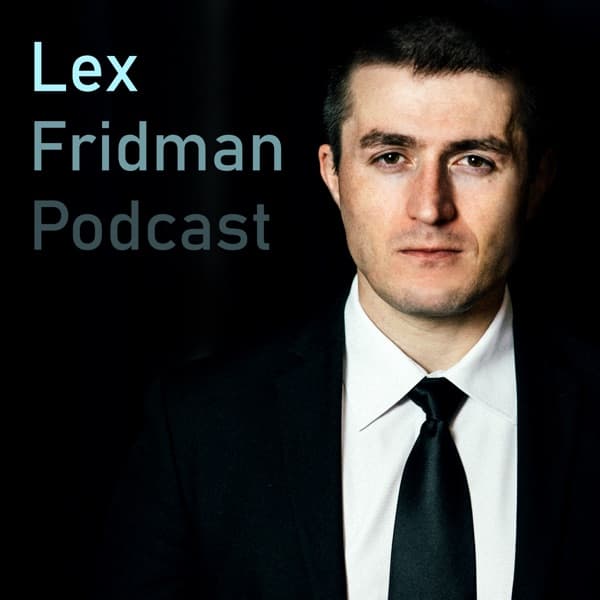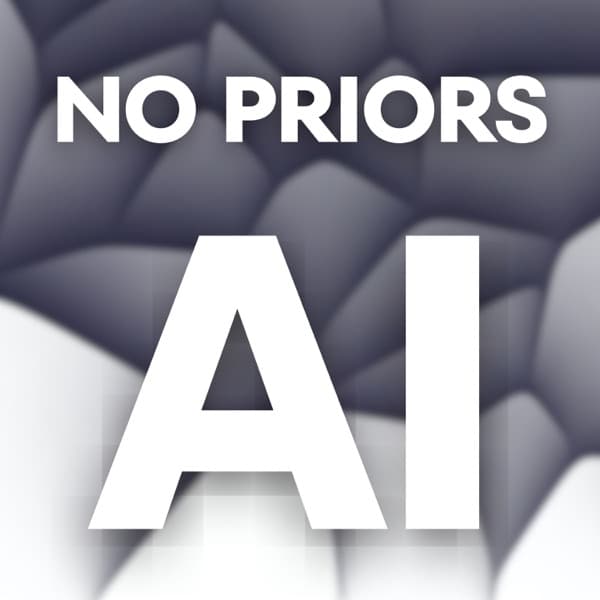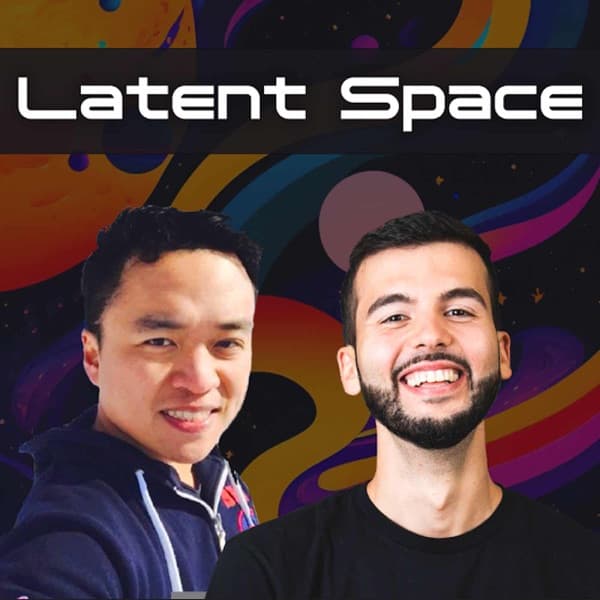Latent Space: The AI Engineer Podcast: The podcast reflects on the growth of AI engineering, the evolution of AI models, and the future of AI capabilities, emphasizing the importance of research and production integration.
Latent Space: The AI Engineer Podcast - Latent.Space 2024 Year in Review

The podcast hosts discuss the journey of their podcast over 100 episodes, highlighting the growth of AI engineering as a field. They note the increasing interest in AI engineering, marked by Gartner's recognition and the rise of AI engineers. The conversation touches on the challenges and debates around defining AI engineering, particularly its boundaries with ML engineering. They emphasize the importance of integrating research into production, citing examples like NeurIPS and the role of conferences in bridging the gap between research and practical applications. The hosts also discuss the competitive landscape of AI models, noting the shift in market share from OpenAI to competitors like Anthropic and Gemini. They highlight the importance of inference time compute and the evolving business models in AI, such as OpenAI's shift from fixed to variable costs. The podcast concludes with reflections on the future of AI, including the potential of agents and the role of synthetic data in AI development.
Key Points:
- AI engineering is rapidly growing, with increasing recognition and demand for AI engineers.
- The integration of research into production is crucial for advancing AI capabilities.
- Market dynamics are shifting, with competitors gaining ground on OpenAI.
- Inference time compute is becoming a key focus in AI model development.
- The future of AI includes the rise of agents and the use of synthetic data.
Details:
1. 🎉 Celebrating 100 Episodes!
- The podcast has reached a milestone of 100 episodes.
- The show has been running for almost two years.
- Hosts include Alessio, partner and CTO at Decibel Partners, and co-host Zwickx.
- The hosts express gratitude for the audience's support throughout the journey.
2. 🎙️ Evolution of the Podcast
- The podcast has evolved through four different studios, indicating a commitment to improving production quality.
- Initial formats like the lightning round were changed due to repetitive and unsatisfactory responses, showing adaptability in content strategy.
- The podcast has shifted towards more research-driven content, featuring guests like 3DAO and Jeremy Howard, aligning with a trend towards expertise and in-depth analysis.
- Plans to include more guests from both research and applied sectors, like those involved with Gemini, to further enhance content diversity and depth.
- The changes and evolution in the podcast reflect a focus on increasing value and engagement for the audience.
3. 📈 The Rise of AI Engineering
3.1. AI Engineering Growth
3.2. Impact and Influence of AI Engineering
4. 🤖 AI Engineering vs. ML Engineering
- GitHub's launch of 'AI engineers' in their models underscores the term's growing use and acceptance in the industry.
- The boundaries between ML engineering and AI engineering are fluid and often debated, suggesting a need for flexible and adaptable definitions.
- Successful definitions in tech, such as those for AI and ML engineering, tend to be underspecified, allowing for a variety of interpretations and applications.
- Experts suggest that AI engineering encompasses a broader scope that includes but is not limited to ML, integrating other AI technologies for comprehensive solutions.
- Practical examples include AI engineers working on systems that combine ML with other AI technologies like natural language processing or computer vision to create end-to-end solutions.
5. 🧩 The AI Ecosystem: Conferences and Networking
- AWS reInvent's AI engineering talk attracted hundreds of attendees, highlighting the high interest in applied AI and its practical applications.
- The decreasing need for advanced degrees like a PhD is evident as AI models become more user-friendly and accessible, enabling wider participation across various skill levels.
- Conferences such as NeurIPSYS draw significant crowds, with attendance figures reaching up to 17,000, reflecting strong community engagement and interest in the latest AI advancements.
- Latent Space Live event had 950 signups, indicating a robust turnout and enthusiasm for interactive AI discussions.
- Additionally, events are increasingly focusing on real-world applications and networking opportunities, bridging the gap between theoretical knowledge and industrial application.
6. 🧠 AI Production and Research Trends
- AI's shift from research-focused activities to production necessitates an increased emphasis on engineering, which must be treated with equal importance as research.
- Skilled engineering is crucial in AI production, requiring expertise in tasks such as API manipulation and the integration and deployment of GPT models.
- The industry is striving to maintain a balance between staying abreast of the latest research developments and effectively applying these advancements in production environments.
- Examples of successful AI production include the reduction of product development cycles and enhanced customer engagement through personalized AI solutions.
7. 🔍 Deep Dives into AI Progress
7.1. Introduction and Purpose of NeurIPS Coverage
7.2. Key Discussions and Insights from NeurIPS
7.3. Technological Trends and Developments
7.4. Future Directions and Challenges
8. 📊 Benchmarks and AI Performance
8.1. Langchain and Lama Index Growth
8.2. AI Projects and Community Dynamics
8.3. Code Interpreting and New Developments
8.4. Memory and Knowledge Systems
8.5. Standardization and Future Predictions
9. 🌐 AI Capabilities and Market Shifts
- OpenAI's O1 API represents a strategic shift in AI benchmarks, moving from traditional metrics like MMLU and GSM 8K to innovative standards such as SweetBench and LiveBench, indicating a focus on more dynamic and real-world applicable metrics.
- SweetBench's projected performance increase from 13% to 80% by next year highlights the rapid advancement in AI capabilities, showcasing a significant enhancement in AI's problem-solving efficiency.
- Companies are adopting faster innovation cycles, as exemplified by Nvidia's shift to a one-year product cycle, which has boosted their market value and underscored the competitive advantage of rapid development.
- OpenAI's singular focus on superintelligence development, contrasting with Tesla's incremental product strategy, reflects different approaches to achieving technological milestones within the AI sector.
- The AI Engineer World's Fair, with over 2,000 attendees, emphasizes the growing community and interest in AI technology development, fostering collaboration and knowledge sharing.
- OpenAI's Canvas tool, positioned against Google Docs, integrates advanced AI for improved document editing, reflecting competitive strategies in enhancing user experience through AI applications.
- The launch of OpenAI's Chrome extension as a default search engine represents a direct challenge to Google's search dominance, illustrating strategic moves in the search engine market.
10. 🔮 Future of AI and Closing Thoughts
10.1. AI Usage and Emerging Capabilities
10.2. Agent Development and SDKs
10.3. Search and Integration Developments
10.4. AI's Impact on Employment and Skills
10.5. Security and Privacy Concerns in AI Labs
10.6. Funding and Market Trends
10.7. Community and Future Directions
Included Channels
 Lex Fridman Podcast
Lex Fridman Podcast All-In with Chamath, Jason, Sacks & Friedberg
All-In with Chamath, Jason, Sacks & Friedberg Modern Wisdom
Modern Wisdom Greymatter
Greymatter In Depth
In Depth a16z Podcast
a16z Podcast Lenny's Podcast: Product | Growth | Career
Lenny's Podcast: Product | Growth | Career Lightcone Podcast
Lightcone Podcast No Priors AI
No Priors AI The Twenty Minute VC (20VC): Venture Capital | Startup Funding | The Pitch
The Twenty Minute VC (20VC): Venture Capital | Startup Funding | The Pitch How I Built This with Guy Raz
How I Built This with Guy Raz BG2Pod with Brad Gerstner and Bill Gurley
BG2Pod with Brad Gerstner and Bill Gurley Latent Space: The AI Engineer Podcast
Latent Space: The AI Engineer Podcast






